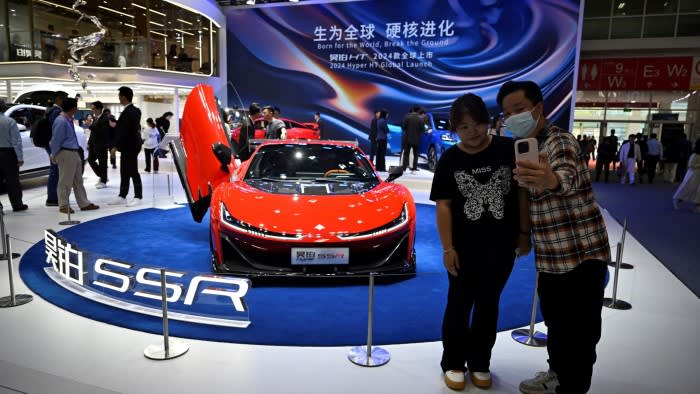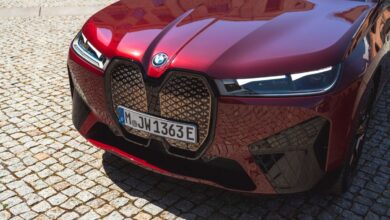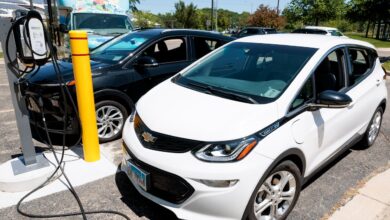Foreign auto groups embrace local technology in China

First, it was Germany’s Volkswagen announcing a series of groundbreaking tie-ups with Chinese tech groups. Now, the renowned national brands of South Korea and Japan have decided that the only way to survive in the country’s cut-throat car market is to buy Chinese-made technology.
Toyota last week chose the Beijing auto show, the premier industry event of the year in China, to unveil a new partnership with the owner of the WeChat superapp, Tencent. The world’s biggest carmaker by sales will work with China’s most valuable listed company on developing services for domestic customers, including deploying Tencent’s artificial intelligence and cloud-based software in its cars. Nissan announced a similar partnership with search giant Baidu to use the Beijing group’s generative AI in its vehicles.
Hyundai, which has suffered plummeting sales in China in recent years, announced at the show that it would develop batteries with China’s CATL. It was a snub to its main supplier, South Korean compatriot SK On, with the Chinese battery king unveiling a new product touted as giving electric vehicles a range of 600km off a 10-minute charge.
The three deals, according to analysts and industry executives, highlighted how an increasing number of multinationals believe the only way to catch up with Chinese carmakers, which have prioritised electric vehicles and advanced technologies, is to incorporate the tech they use in their own models.
“Four years ago, I thought it was almost certain that the Chinese car companies just follow the global [manufacturers], but right now it seems like everything has changed,” said Xie Tiandi, a spokesperson for DJI Auto, a company spun out of the world’s biggest drone maker that is now working with VW on assisted driving technologies.
Foreign carmakers’ sales in China, the world’s biggest car market, sunk to a record low market share of 40 per cent in March, according to Shanghai consultancy Automobility. In recent weeks, sales of pure EVs and plug-in hybrids crept above half of new car sales in China for the first time.
VW, which for years dominated the Chinese car market, has previously conceded it did not move fast enough towards electrification, as Elon Musk’s Tesla and Warren Buffett-backed BYD came to dominate sales of EVs.
The German group has fought back in its biggest market over the past 18 months, making a series of investments in Chinese technology, including joint ventures with Horizon Robotics, one of China’s leading designers of AI chips, and software group ThunderSoft, as well as an equity investment in Guangzhou-based Xpeng, which makes high-tech EVs.
Juergen Reers, global automotive lead for Accenture, a US consultancy, predicted “closer collaboration across the ecosystem” in China as multinational carmakers tried to “reinvent” their business models to keep pace with domestic groups’ rapid transition towards electric-powered vehicles with smarter features.
“What is of utmost criticality right now is acceleration,” he said, adding: “In China, it is viewed as a technology sector, which is really the right mindset.”
One area where Chinese groups are moving faster is in the technologies underpinning autonomous driving, analysts said, including Lidar, which detects the surrounding road conditions, and other sensor types.
According to forecasts from Counterpoint Research, China will have 1mn cars with so-called Level 3 technology — which means drivers can remove their hands from the steering wheel — by 2026, and these vehicles will account for about 10 per cent of new cars by 2028.
China produced 6.7mn vehicles in the first three months of the year, 11 per cent higher than the first quarter of 2023, with sales of EVs up 32 per cent and those of cars with internal combustion engines (ICE) up 3 per cent, according to Automobility.
With the ICE market remaining weak owing to huge overcapacity and acute price pressures, companies are increasing exports from China. The Automobility data also showed first-quarter overseas shipments of Chinese-made vehicles rose 33 per cent year on year to a record 1.3mn vehicles. ICE cars accounted for 77 per cent of exports, while BYD and Tesla together were responsible for about 60 per cent of EV exports.
Kris Tomasson, who leads design at Nio, one of a clutch of tech-focused Chinese EV start-ups, said that given China’s history of manufacturing lower-cost products, outside observers might have misunderstood the “level of quality . . . or technology behind the cars”.
In many countries, EV sales have been smaller than forecast. Legacy carmakers in Europe and the US continue to prioritise sales of vehicles with internal combustion engines, and deployment of EV charging infrastructures has been slow.
“There’s no good products in some markets, that’s why the markets are not growing and not expanding,” said Brian Gu, president and vice-chair at Xpeng. “They are not adopting [EVs] as fast as China. You have to have cost-competitive, innovative, attractive products to be offered to customers to help them through that transition.”
However, amid fears of national security and economic dependence on a country controlled by the Chinese Communist party, the US and its allies, including the EU, are cracking down on Chinese-made technology and trying to secure supply chains without Chinese-made products.
Against this backdrop, experts said foreign groups’ deepening dependence on Chinese technology would raise questions in their home markets.
Tu Le, founder of the Sino Auto Insights consultancy, predicted increasing “bifurcation” of the global car market, with carmakers forced to duplicate the development of smart driving features.
But for now, foreign carmakers have no choice but to embrace Chinese technology to have a chance of surviving in the local market.
“Foreign automakers are trying to stop the bleeding. The market share they lose now, they might not get back,” he said.
Additional reporting by David Keohane in Tokyo



